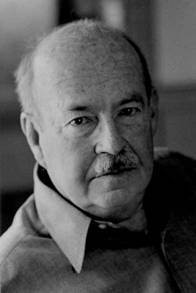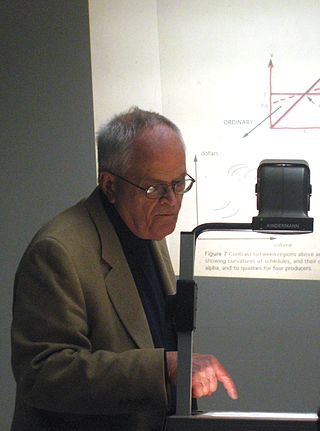Eviatar Zerubavel (born November 25th, 1948) [1] is professor of sociology at Rutgers University, a specialist in the sociology of cognition and everyday life, including topics such as time, boundaries, and categorization.
Eviatar Zerubavel (born November 25th, 1948) [1] is professor of sociology at Rutgers University, a specialist in the sociology of cognition and everyday life, including topics such as time, boundaries, and categorization.
Zerubavel is a grandson of Ya'akov Zerubavel. Born in Israel in 1948 to parents in diplomatic service, he spent much of his childhood abroad. He studied first at the University of Tel Aviv and then received his Ph.D. in sociology from the University of Pennsylvania in 1976, where he studied under Erving Goffman. After teaching at Columbia University and the State University of New York at Stony Brook, he has spent the bulk of his career at Rutgers University. In 2003 he was awarded a Guggenheim Fellowship, and in 2007 he was recognized as a Board of Governors and Distinguished Professor of Sociology.
Zerubavel's first notable contributions were in the study of time, particularly the sociology and standardization of time. His books in this area were Patterns of Time in Hospital Life (1979); Hidden Rhythms (1981); The Seven Day Circle (1985); and Time Maps (2003).
Later he turned his attention to what he has termed cognitive sociology, pointing out how much society rather than human nature shapes our mental lives, and how much the commonalities that mark out social groups involve shared patterns of thinking. His work in this vein includes The Fine Line (1991); Terra Cognita (1992); Social Mindscapes (1997); The Elephant in the Room (2006); and Ancestors and Relatives (2011). His newest book is (2018) Taken for Granted: The Remarkable Power of the Unremarkable. [2]
Zerubavel served for many years as director of the graduate program in Sociology at Rutgers University and mentor to many graduate students. He became very interested in academic work habits and in time management in writing. His book The Clockwork Muse (1999) gives practical advice to writers across disciplines, and in particular advice on time management to those finishing books and dissertations.
His own writing is notable for its use of multiple examples from everyday life, an approach which one of his students, Wayne Brekhus, has called "Zerubavelian" sociology. [3] [4]
He is married to Yael Zerubavel, a scholar of Israeli history who also teaches at Rutgers University.

Talcott Parsons was an American sociologist of the classical tradition, best known for his social action theory and structural functionalism. Parsons is considered one of the most influential figures in sociology in the 20th century. After earning a PhD in economics, he served on the faculty at Harvard University from 1927 to 1973. In 1930, he was among the first professors in its new sociology department. Later, he was instrumental in the establishment of the Department of Social Relations at Harvard.

Alfred Schutz was an Austrian philosopher and social phenomenologist whose work bridged sociological and phenomenological traditions. Schutz is gradually being recognized as one of the 20th century's leading philosophers of social science. He related Edmund Husserl's work to the social sciences, using it to develop the philosophical foundations of Max Weber's sociology, in his major work Phenomenology of the Social World. However, much of his influence arose from the publication of his Collected Papers in the 1960s.

Erving Goffman was a Canadian-born American sociologist, social psychologist, and writer, considered by some "the most influential American sociologist of the twentieth century".

Peter Ludwig Berger was an Austrian-born American sociologist and Protestant theologian. Berger became known for his work in the sociology of knowledge, the sociology of religion, study of modernization, and theoretical contributions to sociological theory.

Henri Lefebvre was a French Marxist philosopher and sociologist, best known for pioneering the critique of everyday life, for introducing the concepts of the right to the city and the production of social space, and for his work on dialectical materialism, alienation, and criticism of Stalinism, existentialism, and structuralism. In his prolific career, Lefebvre wrote more than sixty books and three hundred articles. He founded or took part in the founding of several intellectual and academic journals such as Philosophies, La Revue Marxiste, Arguments, Socialisme ou Barbarie, and Espaces et Sociétés.
Robert Allan Humphreys (1930–1988), known as Laud Humphreys, was an American sociologist and Episcopal priest. He is noted for his research into sexual encounters between men in public bathrooms, published as Tearoom Trade (1970) and for the questions that emerged from what was overwhelmingly considered unethical research methods. He influenced generations of scholars who research issues related to sexuality and sexual identity.

Sociology as a scholarly discipline emerged, primarily out of Enlightenment thought, as a positivist science of society shortly after the French Revolution. Its genesis owed to various key movements in the philosophy of science and the philosophy of knowledge, arising in reaction to such issues as modernity, capitalism, urbanization, rationalization, secularization, colonization and imperialism.
Behavioural science is the branch of science concerned with human behaviour. While the term can technically be applied to the study of behaviour amongst all living organisms, it is nearly always used with reference to humans as the primary target of investigation. The behavioural sciences sit in between the conventional natural sciences and social studies in terms of scientific rigor. It encompasses fields such as psychology, neuroscience, linguistics, and economics.
Robert Ludlow "Bob" Trivers is an American evolutionary biologist and sociobiologist. Trivers proposed the theories of reciprocal altruism (1971), parental investment (1972), facultative sex ratio determination (1973), and parent–offspring conflict (1974). He has also contributed by explaining self-deception as an adaptive evolutionary strategy and discussing intragenomic conflict.

Everyday life, daily life or routine life comprises the ways in which people typically act, think, and feel on a daily basis. Everyday life may be described as mundane, routine, natural, habitual, or normal.
Ernest Watson Burgess was a Canadian-American urban sociologist who was professor at the University of Chicago. He was the 24th President of the American Sociological Association (ASA).

Harrison Colyar White was an American sociologist who was the Giddings Professor of Sociology at Columbia University. White played an influential role in the “Harvard Revolution” in social networks and the New York School of relational sociology. He is credited with the development of a number of mathematical models of social structure including vacancy chains and blockmodels. He has been a leader of a revolution in sociology that is still in process, using models of social structure that are based on patterns of relations instead of the attributes and attitudes of individuals.
Jaber Fandy "Jay" Gubrium is an American sociologist and social psychologist. His research perspective is the narrative ethnography of caregiving, especially care constructed in organizational context. He is a professor emeritus in the University of Missouri Department of Sociology.

Shlomo Breznitz is an Israeli author, psychologist, former professor of psychology, former rector and president of the University of Haifa, and previous member of the Knesset. He is the founder and currently one of the members of the board of directors of CogniFit, a brain fitness software company.
Social anthropology is the study of patterns of behaviour in human societies and cultures. It is the dominant constituent of anthropology throughout the United Kingdom and much of Europe, where it is distinguished from cultural anthropology. In the United States, social anthropology is commonly subsumed within cultural anthropology or sociocultural anthropology.
Chaim Isaac Waxman is an American sociologist now living in Israel. He is the Professor Emeritus of Sociology and Jewish Studies at Rutgers University and a Senior Fellow at the Van Leer Jerusalem Institute.
Cognitive sociology is a sociological sub-discipline devoted to the study of the "conditions under which meaning is constituted through processes of reification." It does this by focusing on "the series of interpersonal processes that set up the conditions for phenomena to become “social objects,” which subsequently shape thinking and thought." Thus, this research aims to sort out the social and cultural contingencies and consequences of human cognition. It has its roots in classical sociological theory, notably Durkheim and Weber, and from contemporary sociological theory, notably Goffman and Bourdieu.
Kari Marie Norgaard is a Professor of sociology at the University of Oregon, a post she has held since 2017. She is known for her research into Indigenous environmental justice, climate change denial and the politics of global warming.
Karen A. Cerulo is an American sociologist specializing in the study of culture, communication and cognition. Currently, she is a Professor Emeritus of Sociology at Rutgers University and working as an active consultant and mentor. She is the former editor of Sociological Forum, the flagship journal of the Eastern Sociological Society. From 2009 to 2010, she served as the Chair of the American Sociological Association's Culture section, and since 1999, she has directed the section's Culture and Cognition Network. Her book Identity Designs: The Sights and Sounds of a Nation won the section's award for the best book of 1996 and her article "Scents and Sensibilities: Olfaction, Sense-making and Meaning Attribution" won the section's 2019 Clifford Geertz Prize for Best Article. Her co-authored book Dreams of a Lifetime: How Who We Are Shapes How We Imagine Our Future won the section's Mary Douglas Best Book Award in 2023. Cerulo is a former Vice President of the Eastern Sociological Society. In 2013, she was named the Robin M. Williams Jr. Lecturer by the Eastern Sociological Society; she won that organization's Merit Award in the same year. In 2019, she was elected to the Sociological Research Association.
Ruth Katz is an Israeli musicologist, a pioneer of academic musicology in Israel, professor emerita at the Hebrew University of Jerusalem. She has been a corresponding Member of the American Musicological Society since 2011. She was named laureate of the Israel State Prize in 2012.